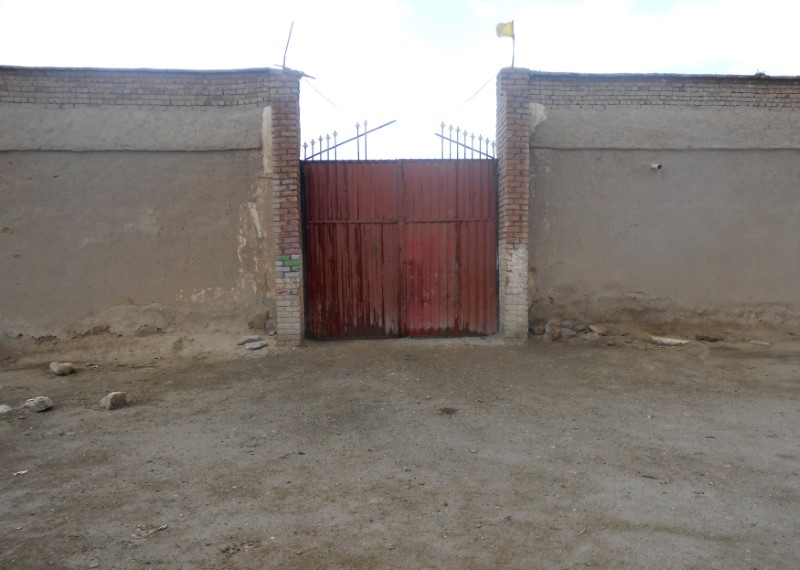By Mohammadullah Himatyar
SHARANA, Afghanistan (Reuters) - When 18-year-old Fawzia was convicted of elopement and adultery, a local Afghan court in the southeastern province of Paktika sentenced her to jail.
She soon discovered that she would not be serving the 18-month sentence in a government-run prison, but in the house of a tribal elder where she would work as an unpaid domestic servant, entirely under his control.
"I was treated like an animal and kept like a slave," Fawzia told Reuters in Sharana, the provincial capital of Paktika.
Released briefly from detention because she was sick, she declined to be formally identified for fear of reprisals from the elder's family. Fawzia is a familiar name by which she is known to relatives and close friends.
"What I have suffered, I pray that no woman should ever suffer," Fawzia said.
In Paktika, a poor, religiously conservative and underdeveloped province sharing a rugged border with some of Pakistan's most lawless areas, there are no detention centers for women.
Afghanistan's overcrowded prisons have frequently been singled out for international criticism.
But for thousands of women, conviction and punishment bypass the formal legal system entirely and are decided by local councils or village elders, as the federal government struggles to impose judicial authority in remote regions.
Restoring fundamental women's rights was one of the main objectives of the international community in Afghanistan, where the hardline Islamist Taliban banned girls from school and women from work.
Fawzia's case shows how hard-earned freedoms won since the Taliban was toppled in 2001 have barely penetrated many areas.
ELDERS' "PROPERTY"
The U.S. State Department's most recent Human Rights report, published in April, noted that "the formal legal system often was not present in rural areas" and gatherings of local elders were the main means of settling disputes.
"They also imposed punishments without regard to the formal legal system," it said.
Some 850 women are imprisoned in official detention centers in Afghanistan for crimes ranging from murder to drugs and "moral crimes", said Alim Kohistani, director of Afghanistan's prison service.
But that number does not include those held in informal detention.
"There could be thousands of other women kept in unofficial places across the country in the absence of proper jails," Kohistani said, adding that the government tolerated the situation but could do little to change it.
"We do our best to help them whenever needed and review their cases on time and make sure their rights are not violated," he said.
While not all women held this way are mistreated, they have little legal recourse to get complaints heard, and human rights activists say the scope for abuse is wide.
"From sexual abuse to other forms of unjust and inhumane acts, these women become a tribal elder's property," said Zalmay Kharote, a rights activist working in Paktika.
Some 95 percent of girls and 50 percent of women imprisoned in Afghanistan were accused of "moral crimes" like running away from home or "zina" - extramarital relations, according to a report from Human Rights Watch.
Though tried in a provincial court, Fawzia has been in the custody of the tribal elder since 2015 and lives in a hut adjoining his house, washing and cleaning for his family, she said.
She did not specify if she had been sexually abused, an issue which carries a huge, potentially deadly, stigma in Afghanistan. But Fawzia did say that she was alone and cut off from her family.
"This is not like a proper prison where you can see your mother, your sister or they can bring something for you," she said, covering her face with a woolen scarf.
"RULE OF LAW CANNOT TOUCH THEM"
Paktika has seen little benefit from tens of billions of dollars in international aid pumped into the country over the past 15 years, despite which the central government has struggled to contain a stubborn Taliban insurgency.
Bibi Hawa Khoshiwal, head of the women's affairs department in the province, said women convicts were being sent to tribal elders as well as to the homes of the few female police officers.
"We admit that it is not legal, but we do get letters from the tribal elders guaranteeing to treat them well. But in some cases they don't," she told Reuters.
Khoshiwal said only 16 criminal cases involving women reached the courts in Paktika last year, while dozens of others, in which women were either victims or perpetrators of alleged murder and abuse, were settled by tribal elders.
Khalil Zadran, a powerful elder in Paktika, said he saw no problem in being the custodian of women prisoners and he had never mistreated women who were held at his home. His second wife is a woman who served a jail sentence in his house.
"When a woman is sentenced, the governor or the police chief call me and ask me to keep the woman in my place as long as it is necessary," he said, leaning on an AK-47 assault rifle as he spoke. "I do this to serve my tribe ... I can keep as many women as it takes."
